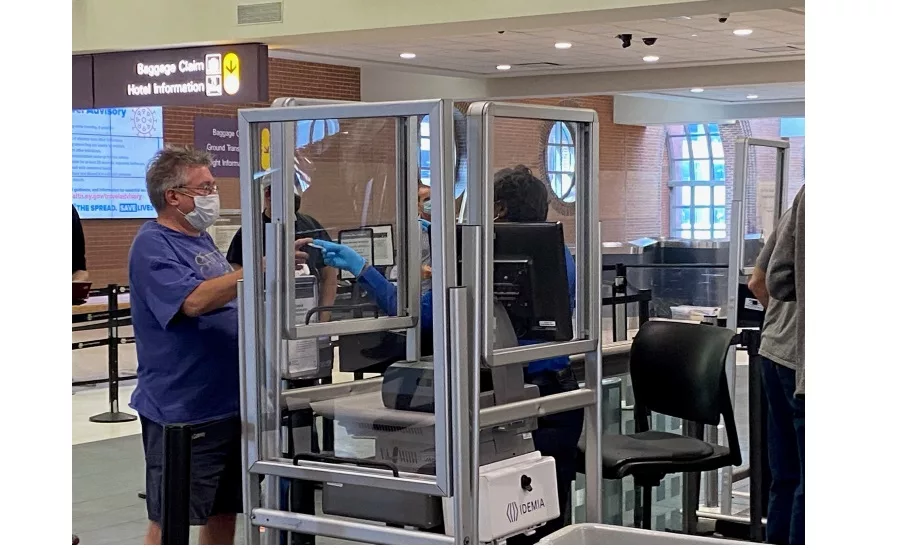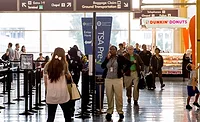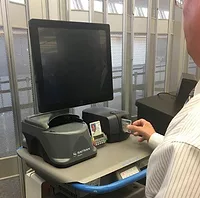Albany airport implements credential authentication technology to improve screening

The Transportation Security Administration checkpoint at Albany International Airport is now using new technology that confirms the validity of a traveler’s identification (ID) and confirms their flight information in near real time.
“The technology enhances detection capabilities for identifying fraudulent documents such as driver’s licenses and passports at checkpoints and increases efficiency by automatically verifying passenger identification,” said Bart Johnson TSA’s Federal Security Director for Upstate New York. “The system will also confirm the passenger’s flight status in near real time through a secured connection.”
Passengers approach the travel document checking station at the checkpoint and hand their ID to the TSA officer who will insert it in the scanner for authentication. Passengers will not have to hand over their boarding pass (electronic or paper), thus reducing a touchpoint. Instead, they hold up their boarding pass to the TSA officer for visual inspection. The CAT unit will verify that the traveler is prescreened to travel out of the airport for a flight that day; however, a boarding pass may be requested for travelers under the age of 18 and/or those with ID issues.
Even with TSA’s use of CAT, travelers still need to check-in with their airline in advance and bring their boarding pass to their gate agent to show the airline representative before boarding their flight.
This technology will enhance detection capabilities for identifying fraudulent documents at the security checkpoint.
CAT units authenticate several thousand types of IDs including passports, military common access cards, retired military ID cards, Department of Homeland Security Trusted Traveler ID cards, uniformed services ID cards, permanent resident cards, U.S. visas and driver’s licenses and photo IDs issued by state motor vehicle departments. After October 1, 2021, the CAT units will not accept driver's licenses that are not REAL ID-compliant. The REAL ID Act establishes minimum security standards for U.S. license issuance and production and prohibits Federal agencies from accepting for certain purposes driver's licenses and identification cards from states not meeting the Act's minimum standards.
Looking for a reprint of this article?
From high-res PDFs to custom plaques, order your copy today!







